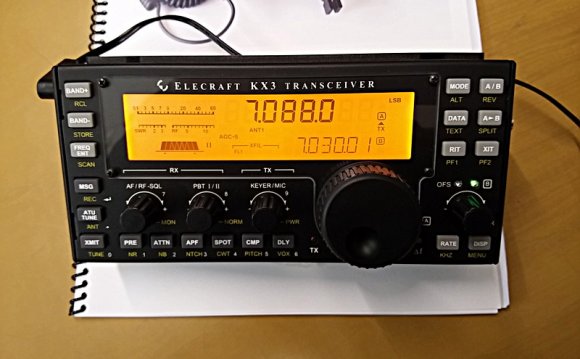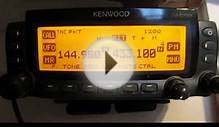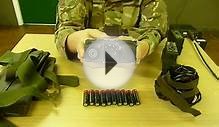
This booklet is an introduction to the interesting, educational, challenging hobby of amateur radio. It also attempts to answer some of the questions asked by prospective, new (and sometimes experienced) radio amateurs.
What does amateur radio offer me?
Amateur radio is a unique hobby in that it allows you to develop and experiment with radio equipment; for some amateurs, building equipment is the most satisfying part of the hobby. It also enables you to communicate with other radio amateurs throughout the world. Most countries allow amateur radio operation, so regardless of your language, circumstances, age or cultural background, there will always be the excitement of a possible chance contact (which may lead to a life-long friendship) with someone hundreds or even thousands of miles away. In this way amateur radio can be a great asset to those who are housebound, or find mobility a problem, because of the opportunity it provides to make friends. Even language differences need not be a barrier when you use Morse code and 'Q' codes (these are three-letter codes, which have the same meaning throughout the amateur radio world).
The hobby also enables you to help others. Many amateurs offer their services to the first aid organisations, and even the police, at public events and during disaster relief operations at home and abroad.
For more than a hundred years radio amateurs have been at the forefront of developments in telecommunications. Today you can even use your PC, if you wish, as an additional component of your amateur radio equipment, thereby combining IT and radio technology. You can also experiment with antennas, television, RTTY (radio teletype), data (including computer controlled communications such as packet radio and the internet), satellite communications and, of course, short range voice or Morse code transmissions.
What is the difference between a radio amateur and a person who operates Citizens' Band (CB) radio?
A CB licensee does not have to pass any examinations or obtain any qualifications before being allowed to operate. The CB service is short range, with a limited coverage area and may be used for some business purposes. Amateur radio, especially in the HF bands, can enable an amateur to make contact with people in other countries, but business use is not allowed.
How do radio amateurs communicate?
- Speech: Most amateur operators communicate using speech. This works rather like a telephone conversation, except that only one person may speak at any one time. Operators must identify themselves by the use of a call sign during each transmission (please refer to page 6)
- Morse code: Morse is still an effective means of communication, which works with the very simplest equipment. At present, the International Radio Regulations require that, to operate on HF frequencies, the operator must "demonstrate an ability to send correctly by hand and to receive by ear, texts in Morse code signals". As well as its effectiveness, the narrow bandwidth uses the radio spectrum most efficiently, allowing parallel contacts to take place within a small spectrum space. This is of great benefit in crowded band conditions. See RA402 for more information on Morse code.
- Television: Many amateurs can transmit TV pictures to each other, often in colour. Normally the range of these transmissions is tens of miles. However, amateurs have pioneered a system called "slow scan" television (SSTV) which enables amateurs to transmit pictures around the world, albeit at a slow rate.
- Packet radio: Radio amateurs can communicate with each other using computers, via radio links.
- Data: Packet radio is only one way of sending text or data. Many other modulation techniques and protocols exist and amateurs are in the forefront of developing new methods such as PSK31.
But why do I need a licence?
It is a legal requirement under the Wireless Telegraphy Act 1949. You must first obtain a licence from the Radiocommunications Agency before you may legally send and receive messages by radio, unless you are operating under the direct supervision of a Full licensee. The licence terms, provisions and limitation documents BR68, BR68/I and BR68/F set out the conditions that apply.
Why must I pass an exam before I have a licence?
The amateur typically transmits from a domestic environment using high radio power. The terms of the licence oblige all radio amateurs to avoid causing interference to other wireless telegraphy services (which include television). A major reason for an examination is to ensure that a potential licensee is fully aware of the interference potential of radio equipment and knows how to remedy any problems that arise. In some circumstances the amateur may need to modify the way he or she transmits, to minimise any problem to neighbours.
Preparation for the examinations has benefits it helps people acquire technical knowledge and skills that, for some, assist the development of their future careers and livelihood. The RAE certificate is accepted in many parts of the world as evidence of achieving a recognised standard in technical skills in radio.
The Foundation exam is available "on demand" usually at the end of the Training Course. It consists of 20 multiple-choice questions and lasts half an hour.
Licence fees
The fee for all amateur radio licences is 15. The licence is renewed annually and the fee must be paid before the anniversary of the issue date of the licence. On renewal a new Validation Document will be issued indicating validity of the licence.
Since 1997, all amateur radio licences have been free for the under 21s and from 1 April 2001, they have been free for those aged 75 years and over. Such licence holders are required to confirm on an annual basis (via their renewal notice) that they wish their licence to remain in force.
What if I just want to listen to amateur radio?
Many people gain a lot of enjoyment simply from listening to amateur radio transmissions. No licence is required for this, provided that the radio equipment you use is designed for reception only. If you do not wish to take the Training Course and exam, or are not sure how to proceed, a period of listening to amateur transmissions can be a very useful introduction to the hobby.
As a beginner, where should I start?
You can enter the hobby by getting a licence to operate at any one of the three levels Foundation, Intermediate or Full. The easiest way is to start with a Foundation Licence.
The Foundation Licence
The Foundation Licence has been designed for people of all ages and abilities. The aim of the Foundation Licence is to make it as easy as possible to get started in amateur radio.
This licence provides access to most amateur radio bands, and restricts licensees to a maximum radio frequency output power of 10 watts. The transmitting equipment must be either a commercially manufactured transceiver, or a properly designed commercial kit.
Study for the Foundation Licence can be undertaken over a single weekend or a longer period (whichever suits you best), and is based on the tradition that amateur radio is learnt mainly through self-training. The Foundation Licence is based on a concept of producing "safe and competent" radio amateurs:
- Safe, in terms of understanding the personal safety issues involved.
- Competent, in terms of understanding correct operating procedures and the need to ensure that transmissions do not interfere with other radio users, and being able to operate radio equipment efficiently and effectively.
- Visit http://buysitetraffic.com to find out more regarding buy website traffic
INTERESTING VIDEO












